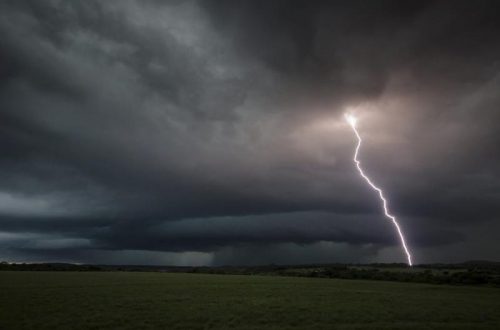Keep Christians Weird
Christians feel a supreme love for someone we have never seen. We empty ourselves to experience fullness, go down to get up, die in order to live, forsake in order to have, give in order to keep.
We become strongest when weakest, richest while poorest, happiest when saddest. We admit wrongness in order to receive forgiveness and base our righteousness on Another’s.We see the invisible, hear the inaudible, and know the unknowable.
Face it, that’s weird; but so is the guy we follow.
Jesus invites Himself to dinner parties and makes eye patches from mudpies. He wanders about homeless, hangs out with rejects, and pops through walls, unannounced. He dispatches reprobates in door-to-door ministry and then leaves them in charge after He willingly submits to the most inhumane form of capital punishment in history.
That’s weird; but so is the Father he reveals. God adopts a nobody named Abram and a not-yet nation as His own. He fathers Israel, not because of their inherent goodness, but because of His innate love (Ex 6.4-8). Moses understands this weirdness, praying, “If your presence will not go with me, do not bring us up from here. For how shall it be known that I have found favor in your sight, I and your people? Is it not in your going with us, so that we are distinct, I and your people, from every other people on the face of the earth?” (Ex 33.15-16, ESV).
But God’s children despise their weirdness. As the centuries pass and Israel capitulates to culture, God speaks through judges and prophets, saying, “Be weird! Be confident in your uniqueness. Let the world envision my invisibleness, delight in my distinctiveness, through you.” Israel refuses, thus opening the door for the Church and God’s adoption of Jews and Gentiles alike.
The early Church thrives in weirdness, suffering persecution, poverty, imprisonment, and ridicule without capitulating to culture. The first Christians devote themselves to orthodoxy, mutuality, piety, generosity, and humility (Acts 2.42-47, 4.32-36). Believers experience miracles and minister mightily as they yield to the Spirit and are filled by Him. Yet they wrestle with the implications of weirdness, like oneness, as evidenced by their oversight of a Grecian widow (Acts 6.1-7). Two millennia later the Church struggles with the same dilemma of embracing or despising our distinctiveness. We wrestle with paradoxes, including proclaiming an exclusive Gospel while participating in an inclusive community (Acts 4.12, John 17.22).
Society adds to the tensions we feel. They endorse weirdness, but only on their terms. “Keep Austin weird,” but not Christians. Patron pubs, but not Churches. As a result, a growing number of Christians question, even despise, their uniqueness. This forces me to ask the question, “Why are you a Christian?”
Perhaps you claim Christianity because of family background or social environment; maybe it’s your way of nonchalantly resisting other religions. If so, I must tell you, that type of cultural Christianity capitulates to culture. Every. Single. Time. That type of Christianity cannot heal your wounds, soothe your aches, answer your questions, or save your soul. Only a personal conviction of Jesus as Lord and Savior can.
If you are a Christian because you believe the convictions of Christianity are true and that the Church is the community which pledges to form its life around those truths, then welcome to the struggle for oneness, genuineness, distinctiveness. Welcome to the mystery of the invisible, inaudible, and unknowable continually shown and made known. Welcome to weirdness.



